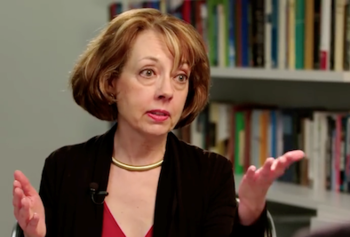In This Story

Schar School of Policy and Government Distinguished University Professor Janine Wedel has received an award from the Carnegie Corporation of New York to launch a groundbreaking research project investigating transnational shadow networks operating in regions such as Central Asia (e.g., Uzbekistan), the Middle East (e.g., United Arab Emirates), Asia (e.g., Hong Kong), and in the world of virtual currency.
This multiphase project will conduct in-depth case studies on networks that facilitate suspect transactions through emerging “shadow spaces,” including cryptocurrency platforms like Binance. The research will identify and map the actors, practices, and secrecy tools that link business, politics, and security services across borders, focusing on strategies used both within illiberal countries and transnationally.
“This study is crucial,” said Wedel, a social anthropologist, “because it reveals the hidden financial systems and geopolitical forces driving weaponized corruption—corruption deliberately used to achieve geopolitical aims and prop up oligarchic and authoritarian regimes, eroding democracy and exacerbating inequality. If researchers, policymakers, and the public don’t grasp these dynamics, we risk enabling them.”
With Wedel at the helm as primary investigator, the team, including George Mason University student researchers, will use innovative investigative techniques, building a comprehensive database incorporating new case studies, existing literature, and findings from prior research, including work funded by Horizon Europe, the European Union’s flagship research and innovation program. The goal is to chart the configurations, behaviors, and secrecy mechanisms of these global actors.
The project will also assess the geopolitical implications of these shadow networks and explore their potential impact on the international order over the next decade. Findings will culminate in a feature report, a policy brief with concrete recommendations, and briefings with policymakers.
Additionally, a 20 to 25 minute multimedia documentary will be produced to broaden public understanding of these critical issues.
